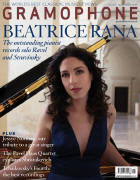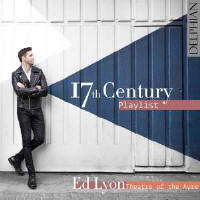Texte paru dans: / Appeared in: |
|
|
Outil de traduction (Très approximatif) |
|
|
Reviewer:
Alexandra Coghlan It’s a lovely concept – an album of the 17th century’s greatest hits, where only the catchiest, most irrepressibly infectious dances and the swooniest ballads need apply. This isn’t about big names (though there are plenty here, Cavalli and Landi representing Italy, Dowland and Lanier from England, with Lambert serving up lashings of French languor) but tunes that just hit the spot, the three-minute Eurovision pop songs of their day. Tenor Ed Lyon has gathered together the starriest of backing groups for his solo debut. Elizabeth Kenny is both lead guitar and rhythm section, roaming seamlessly on to both lute and theorbo, with support from Siobhan Armstrong’s sweet-toned triple harp, Reiko Ichise on gamba and violinists Rodolfo Richter and Jane Gordon. There’s a real sense of musical camaraderie here – of spontaneous conversations and mutual enjoyment of skill. The freedom many of the ground basses allow for improvisation is taken up enthusiastically, and period style is treated (by both the instrumentalists and Lyon himself) with just the right amount of playful, irreverent freedom. Hints of bluegrass creep into the attractive Sonata No 17 by Fontana, spiced, Spanish-style colours into Landi’s impossibly catchy Passacaglia della vita – a tango avant la lettre. Lyon has put together a wonderfully wide-ranging programme but it’s the French repertoire where he really shines. Boesset’s Je voudrais bien Chloris has just the right amount of morning-after sensuality in the lazy ornaments and gentle rhythmic push and pull of the phrasing, while Lambert’s exquisite Vos mespris chaque jour is all rueful beauty, teasing suspensions and trills from pain into reluctant pleasure. There’s plenty of energy and attack in the Italian dances by Landi, drama crackling from Lyon’s crisp diction, and the opening Cavalli (‘Misero, cosi va’ from Eliogabalo) glances in through the window of the opera house for unrequited love at heightened, theatrical pitch. Strangely it’s the English repertoire where this recording is at its weakest. Lyon’s muscular voice feels blanched and confined by the modest melodic dimensions of Dowland’s ‘Time stands still’ and Lanier’s ‘Love’s Constancy’ – songs that bloom freely and with greater colour for so many smaller voices. But it’s a small gripe in an otherwise superb set. |
|




